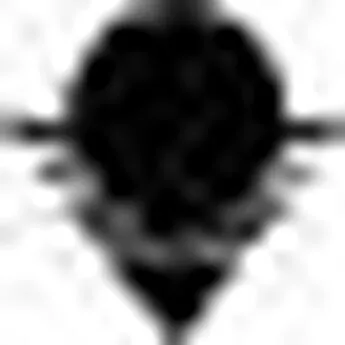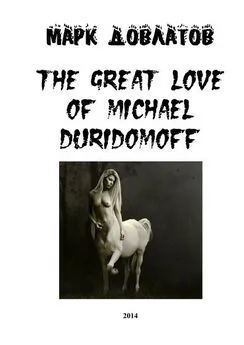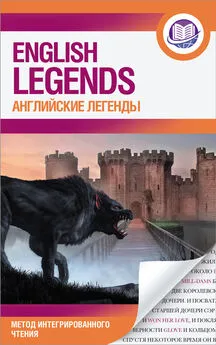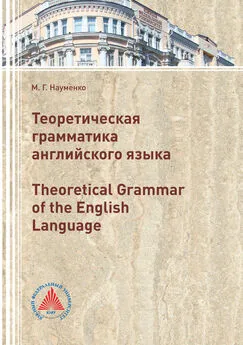Michael Ondaatje - The English Patient
- Название:The English Patient
- Автор:
- Жанр:
- Издательство:неизвестно
- Год:неизвестен
- ISBN:нет данных
- Рейтинг:
- Избранное:Добавить в избранное
-
Отзывы:
-
Ваша оценка:
Michael Ondaatje - The English Patient краткое содержание
The English Patient - читать онлайн бесплатно полную версию (весь текст целиком)
Интервал:
Закладка:
When we parted for the last time, Madox used the old farewell. “May God make safety your companion.” And I strode away from him saying, “There is no God.” We were utterly unlike each other.
Madox said Odysseus never wrote a word, an intimate book. Perhaps he felt alien in the false rhapsody of art. And my own monograph, I must admit, had been stern with accuracy. The fear of describing her presence as I wrote caused me to burn down all sentiment, all rhetoric of love. Still, I described the desert as purely as I would have spoken of her. Madox asked me about the moon during our last days together before the war began. We parted. He left for England, the probability of the oncoming war interrupting everything, our slow unearthing of history in the desert. Good-bye, Odysseus, he said grinning, knowing I was never that fond of Odysseus, less fond of Aeneas, but we had decided Bagnold was Aeneas. But I was not that fond of Odysseus either. Good-bye, I said.
I remember he turned back, laughing. He pointed his thick finger to the spot by his Adam’s apple and said, “This is called the vascular sizood.” Giving that hollow at her neck an official name. He returned to his wife in the village of Marston Magna, took only his favourite volume of Tolstoy, left all of his compasses and maps to me. Our affection left unspoken.
And Marston Magna in Somerset, which he had evoked for me again and again in our conversations, had turned its green fields into an aerodrome. The planes burned their exhaust over Arthurian castles. What drove him to the act I do not know. Maybe it was the permanent noise of flight, so loud to him now after the simple drone of the Gypsy Moth that had putted over our silences in Libya and Egypt. Someone’s war was slashing apart his delicate tapestry of companions. I was Odysseus, I understood the shifting and temporary vetoes of war. But he was a man who made friends with difficulty. He was a man who knew two or three people in his life, and they had turned out now to be the enemy.
He was in Somerset alone with his wife, who had never met us. Small gestures were enough for him. One bullet ended the war.
It was July 1939. They caught a bus from their village into Yeovil. The bus had been slow and so they had been late for the service. At the back of the crowded church, in order to find seats they decided to sit separately. When the sermon began half an hour later, it was jingoistic and without any doubt in its support of the war. The priest intoned blithely about battle, blessing the government and the men about to enter the war. Madox listened as the sermon grew more impassioned. He pulled out the desert pistol, bent over and shot himself in the heart. He was dead immediately. A great silence. Desert silence. Planeless silence. They heard his body collapse against the pew. Nothing else moved. The priest frozen in a gesture. It was like those silences when a glass funnel round a candle in church splits and all faces turn. His wife walked down the centre aisle, stopped at his row, muttered something, and they let her in beside him. She knelt down, her arms enclosing him.
How did Odysseus die? A suicide, wasn’t it? I seem to recall that. Now. Maybe the desert spoiled Madox. That time when we had nothing to do with the world. I keep thinking of the Russian book he always carried. Russia has always been closer to my country than to his. Yes, Madox was a man who died because of nations.
I loved his calmness in all things. I would argue furiously about locations on a map, and his reports would somehow speak of our “debate” in reasonable sentences. He wrote calmly and joyfully about our journeys when there was joy to describe, as if we were Anna and Vronsky at a dance. Still, he was a man who never entered those Cairo dance halls with me. And I was the man who fell in love while dancing.
He moved with a slow gait. I never saw him dance. He was a man who wrote, who interpreted the world. Wisdom grew out of being handed just the smallest sliver of emotion. A glance could lead to paragraphs of theory. If he witnessed a new knot among a desert tribe or found a rare palm, it would charm him for weeks. When we came upon messages on our travels—any wording, contemporary or ancient, Arabic on a mud wall, a note in English written in chalk on the fender of a jeep—he would read it and then press his hand upon it as if to touch its possible deeper meanings, to become as intimate as he could with the words.
He holds out his arm, the bruised veins horizontal, facing up, for the raft of morphine. As it floods him he hears Caravaggio drop the needle into the kidney-shaped enamel tin. He sees the grizzled form turn its back to him and then reappear, also caught, a citizen of morphia with him.
There are days when I come home from arid writing when all that can save me is “Honeysuckle Rose” by Django Reinhardt and Stéphane Grappelly performing with the Hot Club of France. 1935. 1936. 1937. Great jazz years. The years when it floated out of the Hôtel Claridge on the Champs-Élysées and into the bars of London, southern France, Morocco, and then slid into Egypt, where the rumour of such rhythms was introduced in a hush by an unnamed Cairo dance band. When I went back into the desert, I took with me the evenings of dancing to the 78 of “Souvenirs” in the bars, the women pacing like greyhounds, leaning against you while you muttered into their shoulders during “My Sweet.” Courtesy of the Société Ultraphone Francaise record company. 1938. 1939. There was the whispering of love in a booth. There was war around the corner.
During those final nights in Cairo, months after the affair was over, we had finally persuaded Madox into a zinc bar for his farewell. She and her husband were there. One last night. One last dance. Almásy was drunk and attempting an old dance step he had invented called the Bosphorus hug, lifting Katharine Clifton into his wiry arms and traversing the floor until he fell with her across some Nile-grown aspidistras.
Who is he speaking as now? Caravaggio thinks .
Almásy was drunk and his dancing seemed to the others a brutal series of movements. In those days he and she did not seem to be getting on well. He swung her from side to side as if she were some anonymous doll, and smothered with drink his grief at Madox’s leaving. He was loud at the tables with us. When Almásy was like this we usually dispersed, but this was Madox’s last night in Cairo and we stayed. A bad Egyptian violinist mimicking Stéphane Grappelly, and Almásy like a planet out of control. “To us—the planetary strangers,” he lifted his glass. He wanted to dance with everyone, men and women. He clapped his hands and announced, “Now for the Bosphorus hug. You, Bernhardt? Hetherton?” Most pulled back. He turned to Clifton’s young wife, who was watching him in a courteous rage, and she went forward as he beckoned and then slammed into her, his throat already at her left shoulder on that naked plateau above the sequins. A maniac’s tango ensued till one of them lost the step. She would not back down from her anger, refused to let him win by her walking away and returning to the table. Just staring hard at him when he pulled his head back, not solemn but with an attacking face. His mouth muttering at her when he bent his face down, swearing the lyrics of “Honeysuckle Rose,” perhaps.
In Cairo between expeditions no one ever saw much of Almásy. He seemed either distant or restless. He worked in the museum during the day and frequented the South Cairo market bars at night. Lost in another Egypt. It was only for Madox they had all come here. But now Almásy was dancing with Katharine Clifton. The line of plants brushed against her slimness. He pivoted with her, lifting her up, and then fell. Clifton stayed in his seat, half watching them. Almásy lying across her and then slowly trying to get up, smoothing back his blond hair, kneeling over her in the far corner of the room. He had at one time been a man of delicacy.
It was past midnight. The guests there were not amused, except for the easily amused regulars, accustomed to these ceremonies of the desert European. There were women with long tributaries of silver hanging off their ears, women in sequins, little metal droplets warm from the bar’s heat that Almásy in the past had always been partial towards, women who in their dancing swung the jagged earrings of silver against his face. On other nights he danced with them, carrying their whole frame by the fulcrum of rib cage as he got drunker. Yes, they were amused, laughing at Almásy’s stomach as his shirt loosened, not charmed by his weight, which leaned on their shoulders as he paused during the dance, collapsing at some point later during a schottische onto the floor.
It was important during such evenings to proceed into the plot of the evening, while the human constellations whirled and skidded around you. There was no thought or forethought. The evening’s field notes came later, in the desert, in the landforms between Dakhla and Kufra. Then he would remember that doglike yelp at which he looked around for a dog on the dance floor and realized, now regarding the compass disc floating on oil, that it may have been a woman he had stepped on. Within sight of an oasis he would pride himself on his dancing, waving his arms and his wristwatch up to the sky.
Cold nights in the desert. He plucked a thread from the horde of nights and put it into his mouth like food. This was during the first two days of a trek out, when he was in the zone of limbo between city and plateau. After six days had passed he would never think about Cairo or the music or the streets or the women; by then he was moving in ancient time, had adapted into the breathing patterns of deep water. His only connection with the world of cities was Herodotus, his guidebook, ancient and modern, of supposed lies. When he discovered the truth to what had seemed a lie, he brought out his glue pot and pasted in a map or news clipping or used a blank space in the book to sketch men in skirts with faded unknown animals alongside them. The early oasis dwellers had not usually depicted cattle, though Herodotus claimed they had. They worshipped a pregnant goddess and their rock portraits were mostly of pregnant women.
Within two weeks even the idea of a city never entered his mind. It was as if he had walked under the millimetre of haze just above the inked fibres of a map, that pure zone between land and chart between distances and legend between nature and storyteller. Sandford called it geomorphology. The place they had chosen to come to, to be their best selves, to be unconscious of ancestry. Here, apart from the sun compass and the odometer mileage and the book, he was alone, his own invention. He knew during these times how the mirage worked, the fata morgana, for he was within it.
He awakens to discover Hana washing him. There is a bureau at waist level. She leans over, her hands bringing water from the porcelain basin to his chest. When she finishes she runs her wet fingers through her hair a few times, so it turns damp and dark. She looks up and sees his eyes are open, and smiles.
When he opens his eyes again, Madox is there, looking ragged, weary, carrying the morphinic injection, having to use both hands because there are no thumbs. How does he give it to himself? he thinks. He recognizes the eye, the habit of the tongue fluttering at the lip, the clearness of the man’s brain catching all he says. Two old coots.
Caravaggio watches the pink in the man’s mouth as he talks. The gums perhaps the light iodine colour of the rock paintings discovered in Uweinat. There is more to discover, to divine out of this body on the bed, nonexistent except for a mouth, a vein in the arm, wolf-grey eyes. He is still amazed at the clarity of discipline in the man, who speaks sometimes in the first person, sometimes in the third person, who still does not admit that he is Almasy.
Читать дальшеИнтервал:
Закладка:










